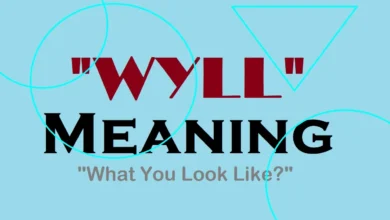
The digital age has brought about an unprecedented level of access to information. From social media platforms to online news sites, the flow of data is constant and often overwhelming. Among the various types of information available online, one particularly contentious form is the public dissemination of arrest records and mugshots, often referred to as “Busted Newspaper.” These websites aggregate and publish detailed information about individuals who have been arrested, sparking debates over privacy, ethics and the right to public information. This article delves into the rise, impact, and controversy surrounding these platforms.
The Rise of Mugshot Publications
The concept of publicizing arrest records is not new. Traditionally, local newspapers would include sections for recent arrests, serving both as a source of local news and a deterrent for criminal behavior. However, with the advent of the internet, this practice has evolved and expanded significantly.
Historical Context
In the past, local newspapers would sometimes publish arrest records and mugshots as part of their public service reporting. This practice was generally limited to serious crimes and was done within the context of local news coverage. The intent was often to inform the community and contribute to public safety. However, these records were typically available only to the local readership and were not easily accessible to a broader audience.
Digital Transformation
With the internet, the dissemination of arrest records has taken on a new dimension. Websites specifically dedicated to publishing mugshots and arrest records began to emerge in the early 2000s. These sites aggregate data from various law enforcement agencies and make it available to anyone with an internet connection. The information is often presented in a searchable format, allowing users to look up individuals by name, location, or date of arrest.
How Busted Newspaper Works
“Busted Newspaper” is a term often used to describe these mugshot websites collectively. While there are many such sites, they generally operate in a similar manner.
Data Aggregation: These websites gather data from publicly available sources, including law enforcement agency websites and public records databases. The information typically includes the individual’s name, mugshot, charges, and date of arrest. Some sites may also include additional details such as the arresting agency and bail amount.
Publication: Once the data is collected, it is uploaded to the website and organized into searchable categories. Users can search for specific individuals or browse recent arrests. The websites often feature sections for different states or counties, making it easy to find local arrest records.
Monetization: Many of these websites are monetized through advertising revenue and removal fees. Ads are displayed alongside the mugshots, generating income based on site traffic. Additionally, some sites offer a service where individuals can pay to have their mugshots and arrest records removed. This practice has been widely criticized as a form of extortion, as it capitalizes on people’s desire to protect their reputation and privacy.
The Impact of Mugshot Publications
The publication of arrest records and mugshots online has far-reaching implications for individuals, communities, and the broader society.
Personal Impact
For individuals, having their arrest record and mugshot published online can have significant and long-lasting consequences. Even if charges are dropped or the individual is found not guilty, the presence of their mugshot on the internet can affect their personal and professional life. Potential employers, landlords, and even friends and family members may come across the mugshot, leading to social stigma and lost opportunities.
Legal and Ethical Concerns
The publication of arrest records raises important legal and ethical questions. While arrest records are public information, the ease with which they can be accessed and the context in which they are presented online can lead to potential abuses. Critics argue that these websites violate individuals’ privacy and can lead to defamation, especially when the information is outdated or inaccurate.
Public Safety and Awareness
Proponents of mugshot publications argue that they serve a public safety function. By making arrest records easily accessible, these sites can help communities stay informed about criminal activity in their area. They can also serve as a deterrent for criminal behavior, as individuals may think twice about committing a crime if they know their arrest will be publicized.
The practice of publishing mugshots online has sparked significant controversy and criticism.
Privacy Concerns
One of the primary criticisms of mugshot websites is that they invade individuals’ privacy. Arrest records are public information, but making them easily accessible online can lead to unintended consequences. For example, individuals who have been arrested but not convicted can suffer reputational damage and discrimination based on the mere fact of their arrest.
Extortion Allegations
Many mugshot websites charge individuals a fee to remove their information, leading to allegations of extortion. Critics argue that this practice exploits individuals’ desire to protect their reputation and can lead to financial hardship, particularly for those who cannot afford the removal fees.
Legal Challenges
There have been numerous legal challenges to mugshot websites. Some states have passed laws aimed at curbing the practice, such as prohibiting the publication of mugshots until after a conviction or banning the charging of removal fees. However, these laws vary widely by state, and the effectiveness of legal measures to address the issue remains a topic of debate.
Ethical Considerations
The ethical implications of publishing arrest records online are complex. On one hand, there is a public interest in transparency and access to information. On the other hand, there is a need to protect individuals’ privacy and prevent harm from the misuse of information. Balancing these competing interests is a challenge for lawmakers, courts, and society as a whole.
Alternatives and Solutions
Addressing the issues raised by mugshot publications requires a multifaceted approach, including legal reforms, technological solutions, and changes in public attitudes.
Legal Reforms
Legal reforms can help address some of the most problematic aspects of mugshot publications. For example, laws that prohibit the charging of removal fees or restrict the publication of mugshots until after a conviction can help protect individuals’ privacy and prevent exploitation. However, these laws must be carefully crafted and effectively enforced to be successful.
Technological Solutions
Technological solutions can also play a role in mitigating the impact of mugshot publications. For example, search engines can continue to refine their algorithms to reduce the visibility of mugshot websites. Additionally, tools and services that help individuals manage their online reputation and remove unwanted content can provide relief for those affected by mugshot publications.
Public Awareness and Education
Raising public awareness about the issues surrounding mugshot publications is crucial. Educating the public about the potential harms of these websites and promoting a more nuanced understanding of arrest records can help reduce the stigma associated with being featured on a mugshot website. Additionally, encouraging responsible behavior by employers, landlords, and others who may come across arrest records can help mitigate the negative impact on individuals’ lives.
Conclusion
The phenomenon of mugshots has evolved significantly from its inception as a simple law enforcement tool to its current status as a complex cultural and legal issue. The rise of digital media and the internet has amplified the impact of mugshots, making them accessible to a global audience and often leading to lasting reputational damage for those depicted. While mugshots can serve important functions in identifying suspects and maintaining public safety, their widespread dissemination raises significant ethical and privacy concerns. The controversy surrounding their use highlights the need for a balanced approach that considers both the rights of individuals and the interests of public transparency and safety. As society continues to grapple with these issues, it is imperative to develop policies that address the potential for misuse and protect individuals from undue harm while still leveraging the benefits that mugshots can provide.





